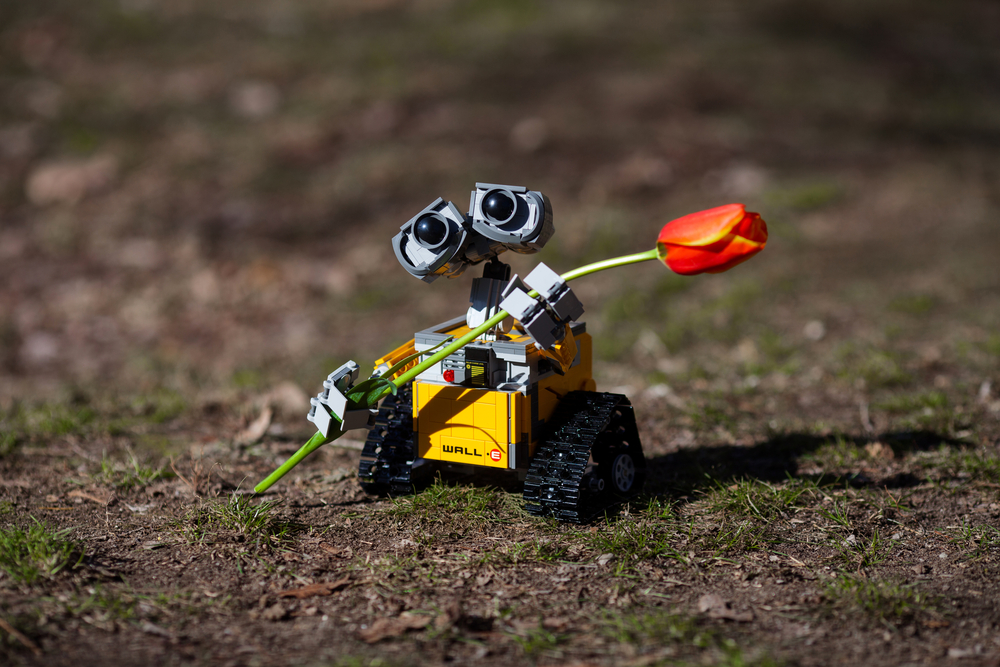Researchers at Tel Aviv University successfully install a locust ear into a robot, allowing it to hear and follow instructions.
By Yakir Benzion, United With Israel
What happens when zoologists and a computer chip engineer meet at a Tel Aviv University campus cafe? No, this isn’t a joke – it happened to be a cross-faculty project that ended up combining an insect’s ear with a computer chip with the result inserted into a robot so it can hear and respond to voices.
Zoologists Yossi Yuval and Amir Eili met with engineer Dr. Ben Maoz and talked about whether or not it is possible to build a bio-hybrid system that would integrate a biological system into a robot. The person who picked up the gauntlet was graduate student Idan Fischel, who took the concept and made it work – leading to a recently published paper in the scientific journal Sensors.
The zoologists knew that over hundreds of millions of years of evolution insects evolved 0some of the most efficient and robust sensing organs, often far more sensitive than their man-made equivalents.
The team developed what they call an “Ear-on-a-Chip” by taking the ear of a locust, mounting it on a computer chip and connecting it to a robotic platform, or what they call their “bio-hybrid Ear-Bot.”
What they came up with was a long-lasting miniature sensory device that takes the neural signals recorded from the bug’s ear in response to sound pulses, processes the signals and uses them to control the robot’s motion. In other words, by connecting the locust ear to the computer chip, they were able to let the chip “hear” what is going on around it and use those sounds to control the robot.
“We wanted to show that we can integrate between biological and electronic systems, and in the sense of hearing there are electrical sensors that are suitable for the task,” explained Dr. Maoz.
“Insects have hearing systems that are structurally simple, but do complex data processing. At the same time, the adaptive system is lightweight and small in size, and easier to use than a mammal’s ear,” added Fischel.
“The challenge is huge. So when we decided to start we chose to go for something that is easy to compare to existing systems, such as a microphone or speaker, but we are sure the project can be taken to other places, such as other insect senses like hearing, smell, vision – that’s where insects have tremendous benefits,” said Dr. Maoz.
Prof. Yuval said the next stage in the bio-electro combination is to do machine learning in order to understand how to mimic nature in their algorithms.
“In the future, such robots will be able to detect explosives or lost people,” Prof. Eili said.
The project was a proof of concept to demonstrate the use of biological ears for robotic sensing and control. Now that they’ve proven that the hybrid works, the team says there is no end to the possibilities like connecting an insect eye to a chip.
“For example, a hearing and vision system on the same robot. It could very well be that even the sky is not the limit,” Prof. Idan said.
Bring Joy to Israeli Soldiers - Send Winter Care Packages!
We are honored to thank the young men and women of the IDF who risk their lives every day to defend the citizens of Israel.
Join us in sending winter care packages and personal notes of support to Israeli soldiers who are out in the cold all day.
Warm up a soldier's heart with essential winter wear including fleece jackets, hats, gloves and more. Keep an entire unit warm!
THE SOLDIERS REALLY APPRECIATE YOUR LOVE AND CONCERN!
Click Here to Send Your Gift and Personal Note to Israeli Soldiers
Do You Love Israel? Make a Donation - Show Your Support!
Donate to vital charities that help protect Israeli citizens and inspire millions around the world to support Israel too!
Now more than ever, Israel needs your help to fight and win the war -- including on the battlefield of public opinion.
Antisemitism, anti-Israel bias and boycotts are out of control. Israel's enemies are inciting terror and violence against innocent Israelis and Jews around the world. Help us fight back!
